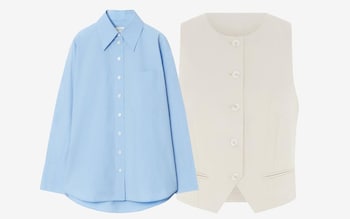Support truly
independent journalism
Support Now
Our mission is to deliver unbiased, fact-based reporting that holds power to account and exposes the truth.
Whether $5 or $50, every contribution counts.
Support us to deliver journalism without an agenda.

Louise Thomas
Editor
In recent years, the dark side of jewellery mining has slowly come to light. The social and environmental risks of mining have been uncovered, with ethical concerns surrounding hazardous working conditions and the extensive degradation of soil and water pollution.
Monica Vinader, founder of the eponymous quiet-luxury brand, set out to change this path that many jewellers were, perhaps unconsciously, blindly following. “The system seemed quite opaque and I wanted to know which mine [my products] came from, so I could be held accountable for the product I was using,” says Vinader.
“For me, the only way I could deliver accountability was through traceability.”

Vinader and her team developed an industry-first product passport. Upon discovering that 88% of the businesses’ carbon footprint was accounted for by gemstones, Vinader decided to get to the bottom of their origins. “We created a three-step due diligence programme with a woman called Nawal Aït-Hocine, who we’d worked with in the Responsible Jewellery Council.
“She helped us put together a bespoke audit purely for gemstones that requires a supplier to have scrupulous certifications and qualifications in tandem with our passport, so it’s not just hearsay.”
Vinader’s new collection, Odyssey, focuses on aquamarine, a gemstone notoriously over-mined. The collection has partnered with a new supplier in Zimbabwe, called Zimbaqua, the only mine in Africa solely managed and operated by women.

“Zimbaqua was the first mine that, from the start, I’ve been able to go to and see the whole process,” says Vinader. “My team were seeing these raw roughs of aquamarine that were then cut into these intricate shapes for Odyssey, which has become a culmination of this journey concerning gemstone traceability.
“It’s been a process not only to clear my conscience, but to also show my customers that there are some mines that are doing things really well and those are the only ones I want to work with.”

The new collection is ingrained with cultural, Hellenistic references, “Odyssey is rooted in the craft, simplicity and sculptural identity of MV,” says Vinader, “Embodying that tactile, ancient feel. We wanted the stones to have really sharp facets in that vibrant aquamarine colour, which really contrasted with the organic shapes of the collection.”

Traceability is the only answer to accountability, argues Vinader, so surely this product passport will soon become compulsory in the industry? “Not for now I don’t think,” states Vinader. “There have been rumblings that it might in the fashion industry, but I hope a lot of other jewellery brands adopt this ahead of legislation anyhow.”
“I haven’t been thinking, should I do this in accordance with law, but rather, is this the right thing to do? I think many customers are now appreciating the importance of where their beautiful pieces are coming from.”
The new Odyssey collection is available from August 5 at Monica Vinader.
Disclaimer: The copyright of this article belongs to the original author. Reposting this article is solely for the purpose of information dissemination and does not constitute any investment advice. If there is any infringement, please contact us immediately. We will make corrections or deletions as necessary. Thank you.


